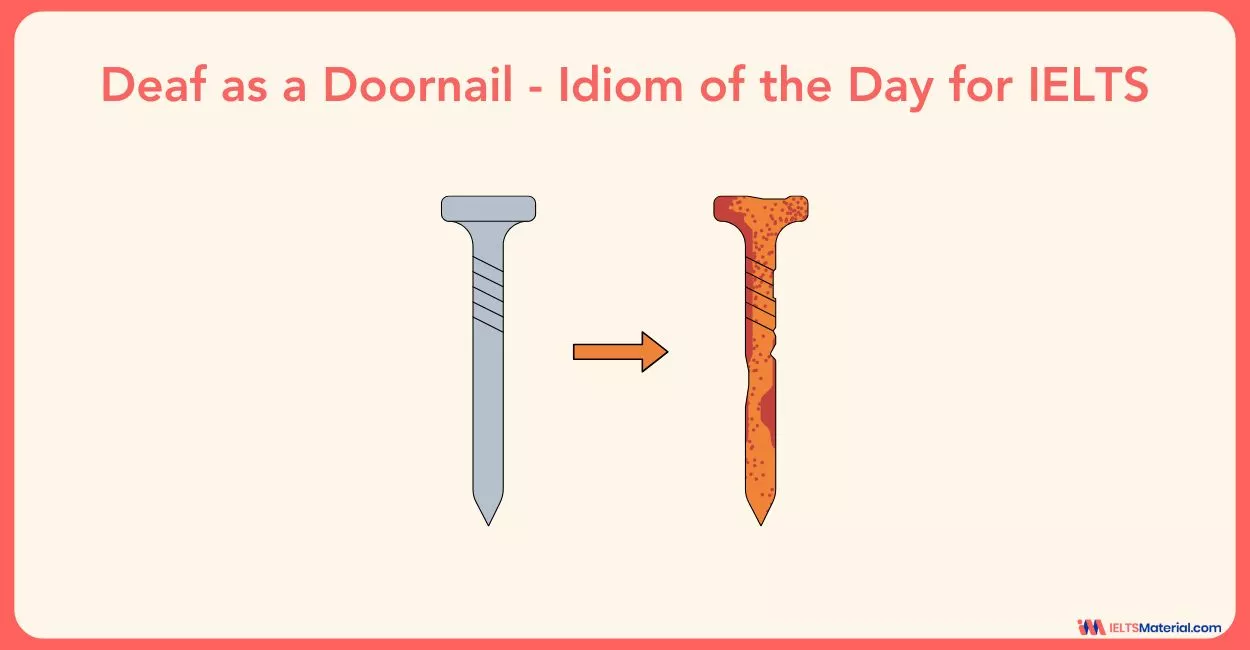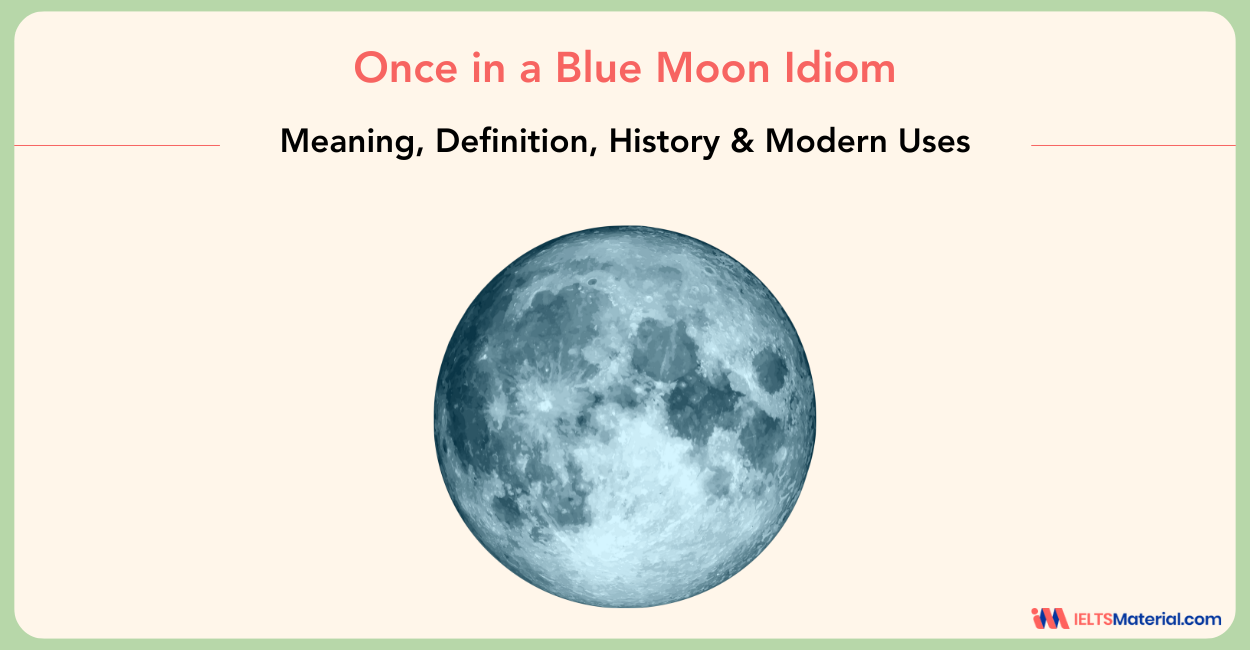Common Idioms to Boost Your IELTS Score – Topic: Health, Illness, and Death
5 min read
Updated On
-
Copy link
Master health-related idioms like “at death’s door” and “a clean bill of health” with clear meanings, real-life examples, and practice tasks. Perfect for boosting your IELTS Speaking and Writing score on the topic of Health, Illness, and Death.
Table of Contents
- Idioms About Being Healthy
- Idioms About Being Unwell or Sick
- Idioms Describing Serious Illness or Near Death
- Idioms That Mean Death or Suicidal Feelings
- Idioms Describing Physical Appearance Due to Illness
- Idioms as Warnings or Realisations
- IELTS Practice Exercises with Health Idioms
- How to Use Health Idioms in IELTS Speaking?
- Quick Reference Table: Idioms Categorized

Limited-Time Offer : Access a FREE 10-Day IELTS Study Plan!
Understanding idioms is key to sounding natural and fluent in the IELTS Speaking and Writing sections and they can add colour, clarity, and fluency to your English, especially in the IELTS Speaking and Writing tests. This blog explores Common Idioms to Boost Your IELTS Score – Topic: Health, Illness, and Death, featuring phrases like “at death’s door” and “a clean bill of health.”
You’ll learn their meanings, see how they’re used in context, and practice them through engaging exercises. Mastering these expressions will not only enhance your vocabulary but also help you respond more effectively to health-related questions in the IELTS exam and achieve your desired IELTS Band Score.
Idioms About Being Healthy
These idioms describe good health and vitality. Use them to talk about feeling energetic or fully recovered in IELTS Speaking.
Alive and Kicking
Meaning: Still active and in good health.
Example: My grandfather is 90 but still alive and kicking!
A Clean Bill of Health
Meaning: A declaration that someone is healthy.
Example: After the surgery, she received a clean bill of health from her doctor.
Note: This phrase originates from a certificate that used to be issued to ships proving no infectious disease was on board.
Idioms About Being Unwell or Sick
Learn expressions to describe mild sickness or tiredness. These are perfect when discussing common health issues in conversations.
Under the Weather
Meaning: Feeling slightly ill or unwell.
Example: I didn’t go to the party because I was feeling under the weather.
The Worse for Wear
Meaning: Feeling tired, injured, or unwell, usually after exertion or a difficult situation.
Example: After the marathon, I was really feeling the worse for wear.
Knock You for Six
Meaning: To shock or weaken someone emotionally or physically.
Example: The flu knocked me for six – I couldn’t get out of bed for a week.
Note: This British idiom comes from cricket, where a ball hit for six is hard to recover from.
Want to master more high-band IELTS vocabulary for the IELTS exam? Book a Free Demo Class today.
Idioms Describing Serious Illness or Near Death
These idioms help convey the severity of illness. Use them to describe extreme health conditions or dramatic recovery stories.
At Death’s Door
Meaning: Very ill and close to dying.
Example: Last year, he was at death’s door, but he made a miraculous recovery.
Fighting for Your Life
Meaning: Seriously ill or injured and struggling to survive.
Example: The patient is still fighting for his life in the ICU.
Variation: "Fight for life" can also be used as a noun phrase.
Idioms That Mean Death or Suicidal Feelings
This section covers idioms related to death, often used informally. Use with caution, especially in sensitive or serious topics.
Kick the Bucket
Meaning: A humorous or informal way to say someone has died.
Example: Our old cat finally kicked the bucket last night.
End It All
Meaning: To commit suicide.
Example: She was so depressed she thought about ending it all, but therapy helped her recover.
Note: Though this idiom has a serious meaning, it's sometimes used in a darkly humorous context.
Grab the newly launched Vocabulary for IELTS (Essential words for popular topics in IELTS) to level up your preparation.
Idioms Describing Physical Appearance Due to Illness
Talk about visible changes in appearance due to illness. These idioms help add depth to personal health stories in the test.
A Shadow of Your Former Self
Meaning: Someone who looks much thinner or weaker than before, often due to illness or stress.
Example: He looked like a shadow of his former self after months of chemotherapy.
Skin and Bone(s)
Meaning: Very thin, usually due to poor health or lack of nutrition.
Example: She lost so much weight during her illness—she was just skin and bones.
Idioms as Warnings or Realisations
These idioms express sudden awareness or life-changing moments. Use them to show emotional impact or important turning points.
A Wake-Up Call
Meaning: A shocking event that makes someone realise the seriousness of a situation.
Example: His stroke was a wake-up call that made him change his lifestyle.
IELTS Practice Exercises with Health Idioms
Practice makes perfect! Try these exercises to reinforce the idioms you've learned and prepare to use them confidently in the IELTS exam.
Exercise 1: Fill in the Blanks
Complete the sentences using appropriate idioms:
- He lay at ____________’s door for weeks but miraculously survived.
- After six months of recovery, she got a clean bill of ____________.
- My grandma is still ____________ and kicking at 87!
- I’m not ready to ____________ the bucket just yet.
- The accident victim is ____________ for his life in the hospital.
- That virus really ____________ me for six.
- I’m feeling a bit the worse for ____________ today.
- He never felt he wanted to ____________ it all.
Exercise 2: Match the Meaning
Match the idiom to its meaning:
- A. Under the weather
- B. Kick the bucket
- C. Skin and bones
- D. A clean bill of health
- E. At death’s door
- F. A wake-up call
Meanings:
- Very thin due to illness
- Slightly unwell
- To die
- Declaration of good health
- A warning to take things seriously
- Very ill or close to death
Answers:
1 - C, 2 - A, 3 - B, 4 - D, 5 - F, 6 - E
How to Use Health Idioms in IELTS Speaking?
You can use these idioms when describing your health or recounting past experiences:
- “Last winter, I felt like I was at death’s door due to the flu.”
- “I used to party a lot in college, but now even a late night leaves me feeling the worse for wear.”
Tip: Avoid using dark humour (e.g., "kick the bucket") in formal writing or when the tone is serious, such as when discussing real deaths in Task 2.
Quick Reference Table: Idioms Categorized
| Category | Idioms |
|---|---|
| Being Well | Alive and Kicking, A Clean Bill of Health |
| Being Unwell | Under the Weather, The Worse for Wear |
| Almost Dying | At Death’s Door, Fighting for Your Life |
| Dying | Kick the Bucket, End It All |
| Very Thin | A Shadow of Your Former Self, Skin and Bones |
| Sudden Realisation | A Wake-Up Call |
| Strong Illness | Knock You for Six |
Using idioms effectively in your IELTS Speaking or IELTS Writing can improve fluency and lexical resource scores. However, always ensure they’re used in the right context and not overused. Practice them in conversations or mock speaking sessions so they come naturally during the test. If you're aiming for top scores, follow the IELTS Exam Preparation Tips for Band Score of 8+ to further enhance your vocabulary and overall test performance.
Also check:
Explore IELTS Resources

Start Preparing for IELTS: Get Your 10-Day Study Plan Today!
Recent Articles

Kasturika Samanta

Prity Mallick

Nehasri Ravishenbagam





Post your Comments